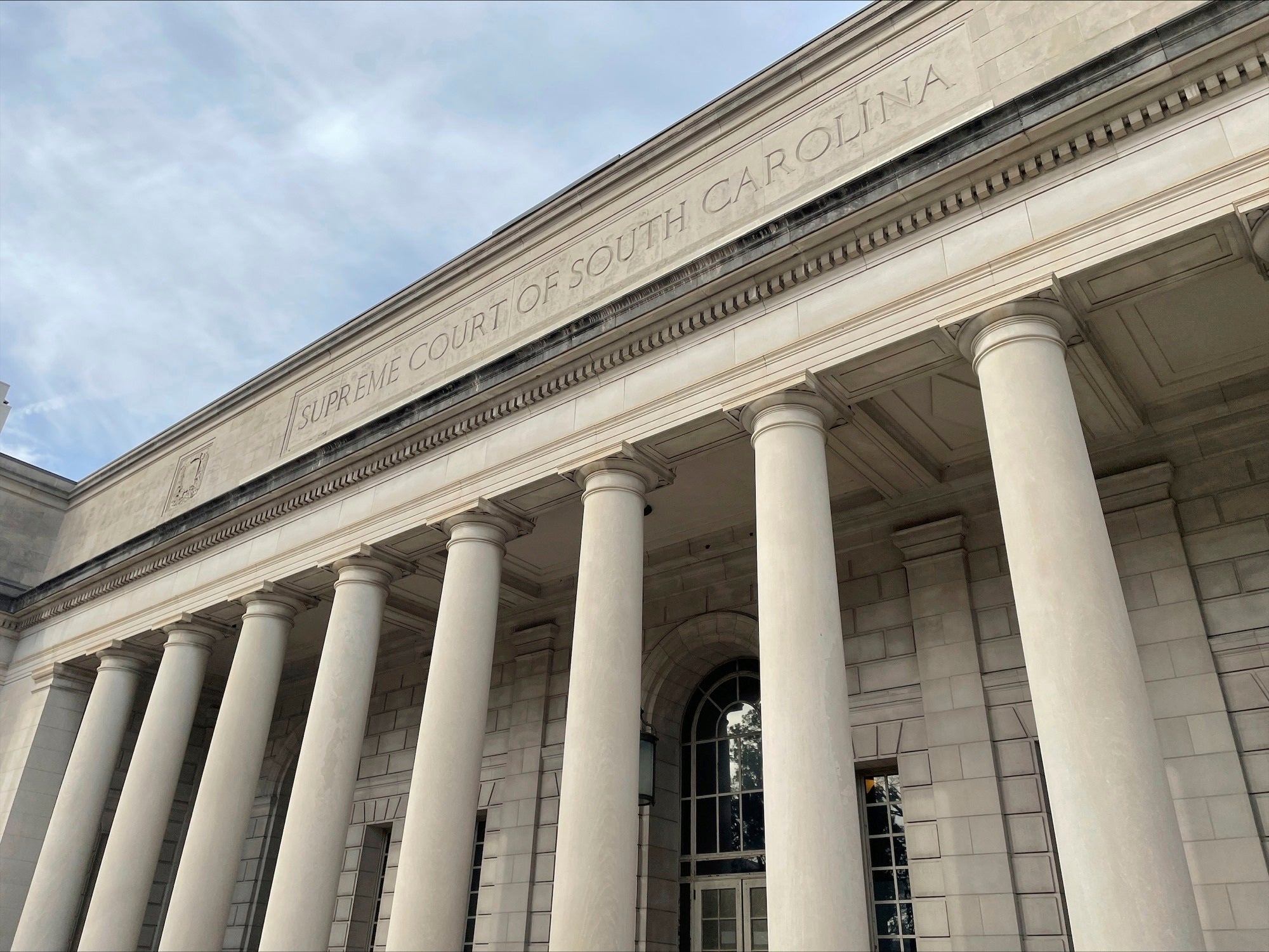A man is back in prison despite a deal reducing his sentence. He's fighting to restore the agreement
A lawyer for a man sent back to prison in South Carolina after a deal reducing his sentence was canceled is asking for the agreement to be restored

Your support helps us to tell the story
From reproductive rights to climate change to Big Tech, The Independent is on the ground when the story is developing. Whether it's investigating the financials of Elon Musk's pro-Trump PAC or producing our latest documentary, 'The A Word', which shines a light on the American women fighting for reproductive rights, we know how important it is to parse out the facts from the messaging.
At such a critical moment in US history, we need reporters on the ground. Your donation allows us to keep sending journalists to speak to both sides of the story.
The Independent is trusted by Americans across the entire political spectrum. And unlike many other quality news outlets, we choose not to lock Americans out of our reporting and analysis with paywalls. We believe quality journalism should be available to everyone, paid for by those who can afford it.
Your support makes all the difference.A lawyer for a man sent back to prison in South Carolina after a deal reducing his sentence was canceled said he plans to ask for the agreement to be restored.
Attorney Todd Rutherford said Wednesday that he and his client Jeroid Price did nothing wrong to warrant the state Supreme Court's emergency order in April that sent Price back to prison.
“Jeroid Price is being treated as someone who did something wrong, when in fact he did nothing wrong,” Rutherford said at a news conference Wednesday after the full order explaining the court’s 3-2 decision was issued.
The court ruled that Solicitor Byron Gipson and now retired Judge Casey Manning didn’t follow the law when they secretly cut 16 years off Price's 35-year sentence. Among their mistakes was not holding a public hearing or publicly filing documents, the justices said.
The court ordered Price back to prison in April, but he did not turn himself in and was taken into custody in New York City 11 weeks later.
In their ruling, the justices said they were “greatly troubled by the fact that neither Solicitor Gipson nor Judge Manning made any effort to comply with even one of the requirements” of the law. The court said Gipson and Manning shouldn’t have handled the case in secret or sealed it so no one could review the order.
“Judge Manning committed multiple errors of law and acted outside his authority,” Supreme Court Justice John Few wrote in the ruling.
The Associated Press sent an email seeking comment to Gipson’s office but was unable to locate a telephone number for Manning, who retired days after approving Price’s release.
The two justices who disagreed with the ruling said while the actions of the judge and prosecutor were disturbing — and Price likely deserved to serve his entire 35-year sentence — Price shouldn’t have been sent back to prison for their mistakes.
“We should not permit the State to resort to the judicial branch for relief from the State’s own poor choices, as embarrassing as they may be for the State,” Justice George James wrote in his dissent.
Price was found guilty of murder for shooting Carl Smalls Jr. at a Columbia club in 2002. Prior to the 2010 law, there was no way to reduce a murder sentence. Prosecutors, therefore, asked lawmakers to give them a way to reward prisoners who provided information that helped keep prisons safe, such as planned attacks on guards.
Price twice helped guards by reporting or stopping planned attacks, and called his lawyer to tell him about an escaped inmate before state prison officials realized the man was missing, said Rutherford, who is also South Carolina's Democratic House Minority Leader. He said he will have more witnesses, evidence and other information for a judge to consider at a new hearing if it is scheduled.